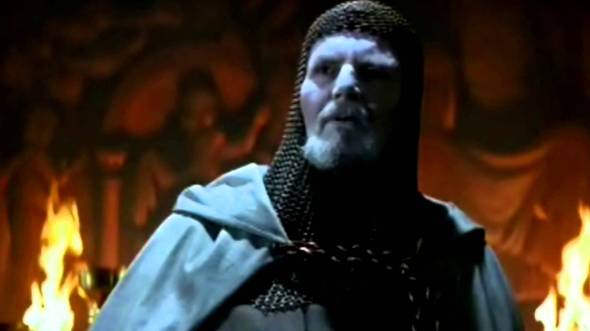He Chose Poorly, You Have Chosen Wisely
In April the rhetoric surrounding college admission inevitably comes to embrace the notion of choice as many students weigh their options prior to the National Candidates Reply Date on May 1. To be sure, the month of April is a portentous period for college-bound students and their parents as families begin to transition and necessarily start to contemplate a change in their configuration. Emotions run high as excitement and hope twine with a nervous energy that, in part, stems from a fear of missing out (FOMO, if you must). Here it would seem that much of the work of counselors lies in our ability to help students and families retain perspective through this process, validating their concerns even as we try to reframe them. On a practical level, individuals are often concerned with selecting the “right” college to attend and yet I cannot help but think about the invocation of “choice,” its assumed power, and its relationship to young people.
Back in 2012 I taught an undergraduate class on marketing ethics for USC’s Marshall School of Business and I began to cause a minor fuss over a recent Old Navy commercial that I had seen. Ostensibly aimed at a demographic that was of my age or older, I began a rant over how a company had come to appropriate the notion of choice in order to sell jeans that were functional but not necessarily noteworthy (which, I mean, is the whole purpose of commercial advertising). Although my students were generally too young to understand the original reference, I began to explain to them that I was upset because this move represented a blatant effort to wrest agency away from persons, presenting them with the illusion of choice while absconding with its power.
Taking a different approach, I had the students read the Beverly Hills, 90210 “I choose me” scene against the love triangle presented by Twilight—and the relative impossibility of readers aligning with Team Bella—to think about how the presentation of choice has changed in recent years. Young Adult (YA) fiction, in particular, has become an interesting place to explore the concepts of choice due to its relatively recent mainstream popularity and the rise in dystopian settings, which are often concerned with people making difficult choices and their ability to do so. Although some of my thoughts regarding the theme of choice in YA are reflected in a piece for Slate that reads Harry Potter against Divergent with respect to clans/identity/choice, what is more directly salient is not just the relative importance of choice but the implications of being asked to declare a binding allegiance as a young person. While useful as entry points, I also encouraged students to push back against the presentation of choice in Harry Potter and Divergent as both tended to focus on the connection between innate qualities and group identity, legitimizing individualism and genetics over context, environment, and existing social structures.
In spite of my occasional quibbles with them, I still think that there is a way to use YA texts like Divergent and Harry Potter (or, if you like, Enclave and Quarantine) to think about what it means for young people to make a decision that is, for them at least, often perceived as life-changing and somewhat irreversible. At its core, what does it actually mean to make a choice—in this case perhaps the choice of which institution to attend—in the college admission process? Is there merit to reframing the discussion in order to deemphasize the name of a school in favor of highlighting what the experience itself might bring? How can we change the college-going culture so that young people (and their parents) feel better equipped to make choices when they are presented? How do we get students and parents to complicate the notion of choice in order to consider that while an individual decision might be their own, the range of choices that they have are often influenced by external factors—for example, while an institution’s ranking might not be important in which school a student ultimately attends, a larger view also considers how the logic of ranking infiltrates education and makes particular avenues more salient for particular students in the first place—while remaining cognizant of the information overload that already exists? In what ways must we be self-reflexive as we guide students and parents toward making particular choices? Put another way, how do we, like Old Navy, encourage students to make particular kinds of choices in favor of others and what are the potential implications of our actions?
For me, the answer begins with a critical examination of choice: I want to support the ability of students and families to make informed choices but the question always remains, “A choice to do what?”
I want students to choose wisely.
April 6, 2014 | Categories: Education, Youth | Tags: Beverly Hills 90210, Choice, College Admission, Divergent, Empowerment, Enclave, Fear of Missing Out, Harry Potter, I Choose Me, Marshall School of Business, National Candidates Reply Date, Old Navy, Quarantine, Slate, Team Bella, Twilight, USC, YA | Leave a comment



You must be logged in to post a comment.